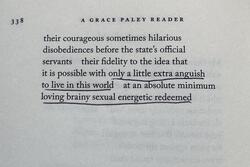No Strings Attached? No Way.
In the film industry, 2011 was the year of casual sex. In January, Paramount Pictures released No Strings Attached, starring Ashton Kutcher and Natalie Portman. The movie documents two best friends who think that introducing physical intimacy into their relationship won’t complicate things and that feelings will not be involved, resulting in a “no strings attached” relationship. Their arrangement goes awry when both Kutcher and Portman’s characters fall for one another but struggle with telling one another of their strong feelings. Six months later, Castle Rock Entertainment released Friends with Benefits, staring Justin Timberlake and Mila Kunis. The plot is essentially the same as No Strings Attached, with different actors.
The fight for gender equality has also included the fight for women’s sexuality. In the film She’s Beautiful When She’s Angry, released a few weeks ago, the founders of the feminist movement describe constantly faking orgasms and feeling ashamed to tell their partners. In addition, one woman describes her epiphany upon realizing that sex can be pleasurable for both partners involved. As far as this idea is concerned, Friends with Benefits and No Strings Attached are both pioneering films as both partners appear to be equally satisfied after each sexual rendezvous. In addition, in No Strings Attached, Kutcher’s character defies traditional gender norms by being the one who wants a more traditional relationship while Portman’s character is emotionally distant.
According to many blogs including sexyfeminist.com, these movies are both “gender balanced romantic comedies.” So why was it that when considering what aspects of society I would like to make disappear from history books, I immediately thought of these two films? Am I being hypersensitive? Am I becoming one of those “annoying feminists” who “make everything about feminism?” No, in fact, I am not. It is quite the opposite.
Even before I identified myself as a proud feminist, when I saw these movies in eighth grade, I left the theatre feeling uncomfortable and anything but empowered. The more I think about it, the more I realize how twisted these movies are. Although they may seem like gender-balanced films, they also send a terrible message to young girls: intimacy, sex and emotions can all be separated from one another. They also send the message to both young people that it’s okay to have casual sex but if you begin to have feelings for your partner you should suppress them if it is not part of “the arrangement.” This movie also promotes the “prince charming” and “happily ever after” myths, both of which are not consistent with real life. Life and love is messy, and rarely includes fairy-tale endings.
At the same time as the founding of the feminist movement, many young boys were being taught that “real men don’t cry.” By featuring two male protagonists who struggle to identify and talk about their feelings, these films are also perpetuating that outdated ideal.
There is nothing inherently wrong with casual sex. Although it may be against the Torah and frowned upon in society, what one does with their body and their partner is nobody’s business but their own. I believe that these movies do support this idea and do send some good messages to today’s youth, however, the bad messages outweigh the good. These movies appear to be progressive, however, in reality, take away women’s agency. They discourage women from seeming clingy and wanting commitment, selling the idea as “sexual liberation.” This is clearly misogyny, just in a less obvious form. This is a part of my generation’s culture that I would not like history to remember us by.
This piece was written as part of JWA’s Rising Voices Fellowship.







